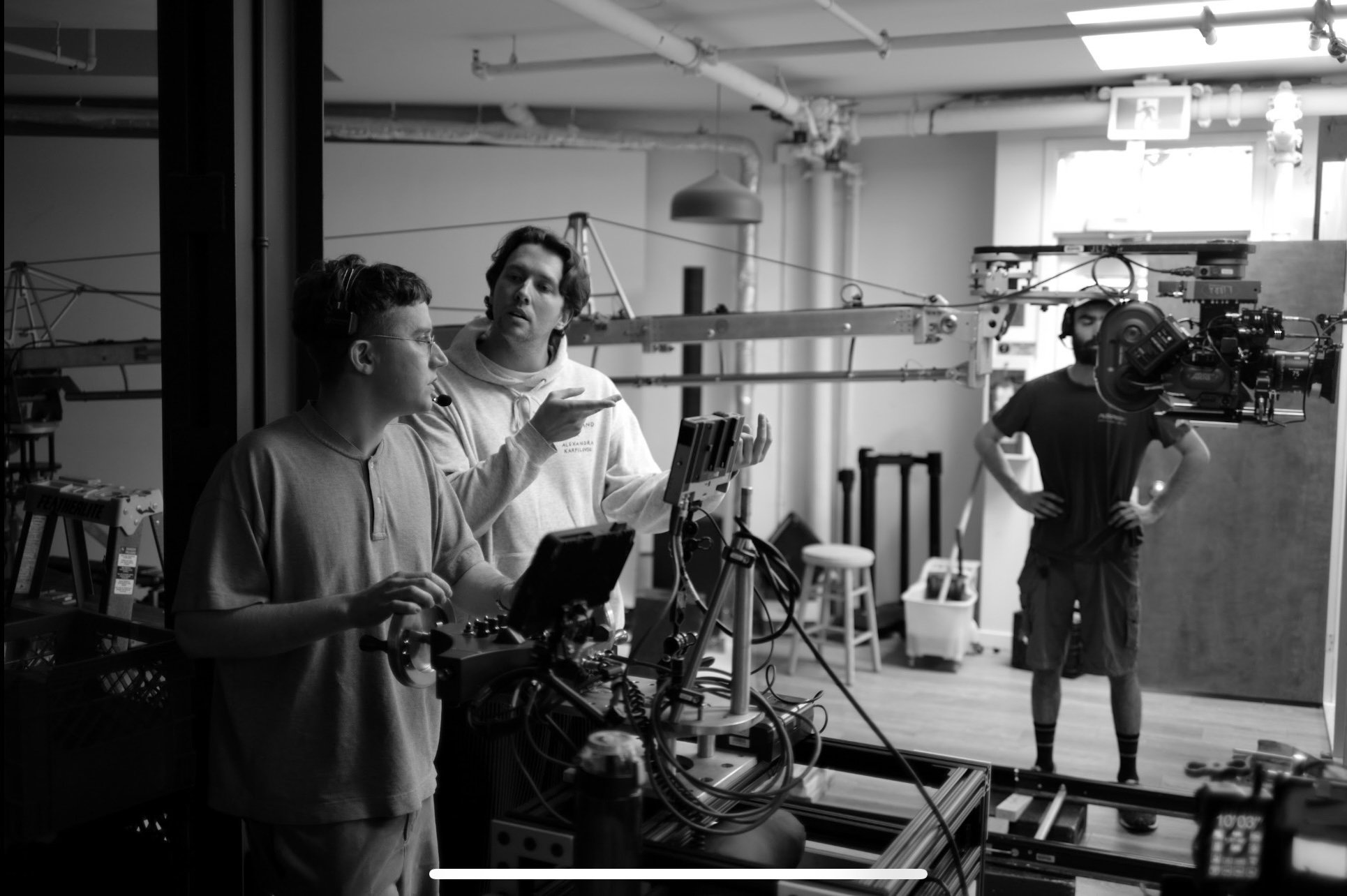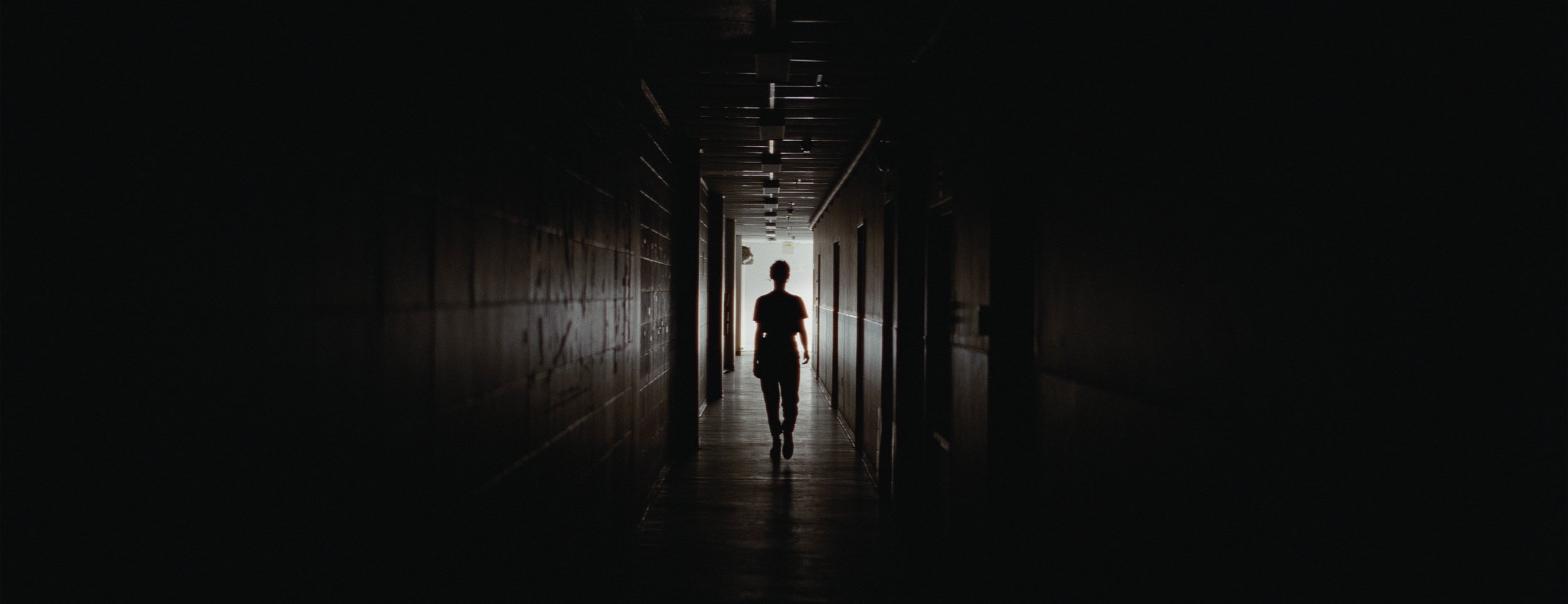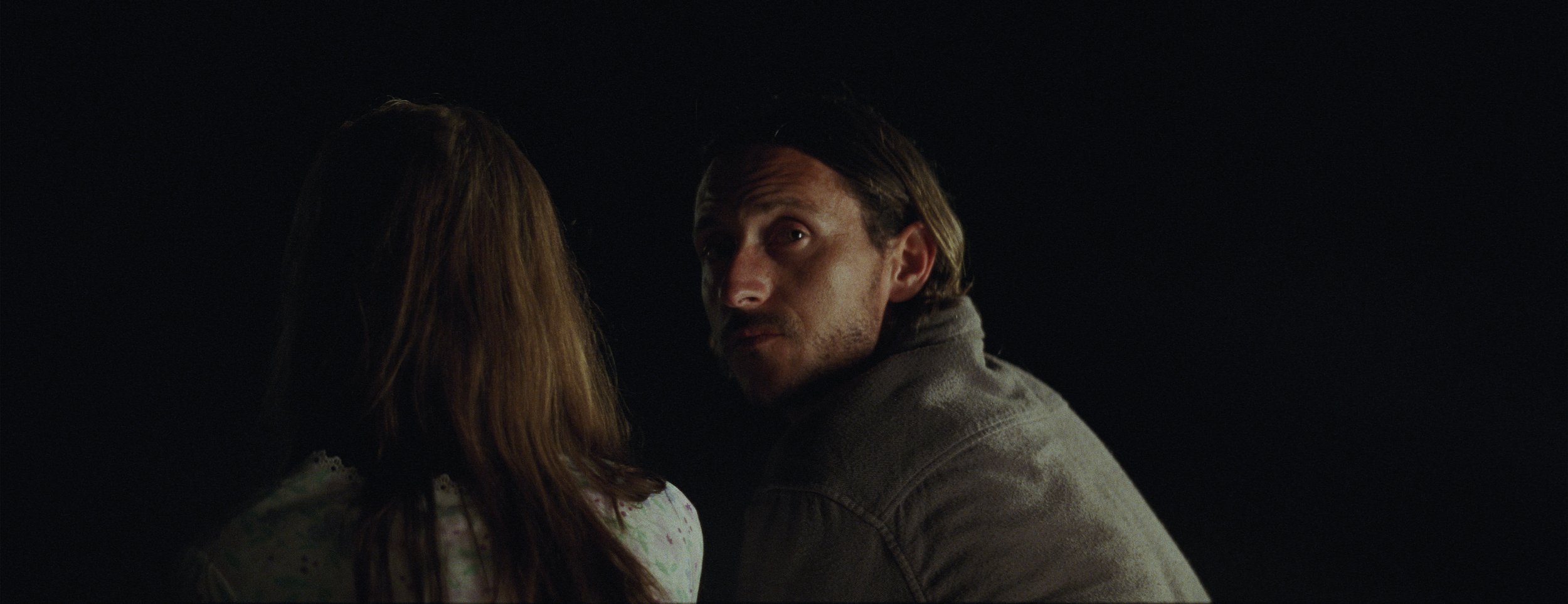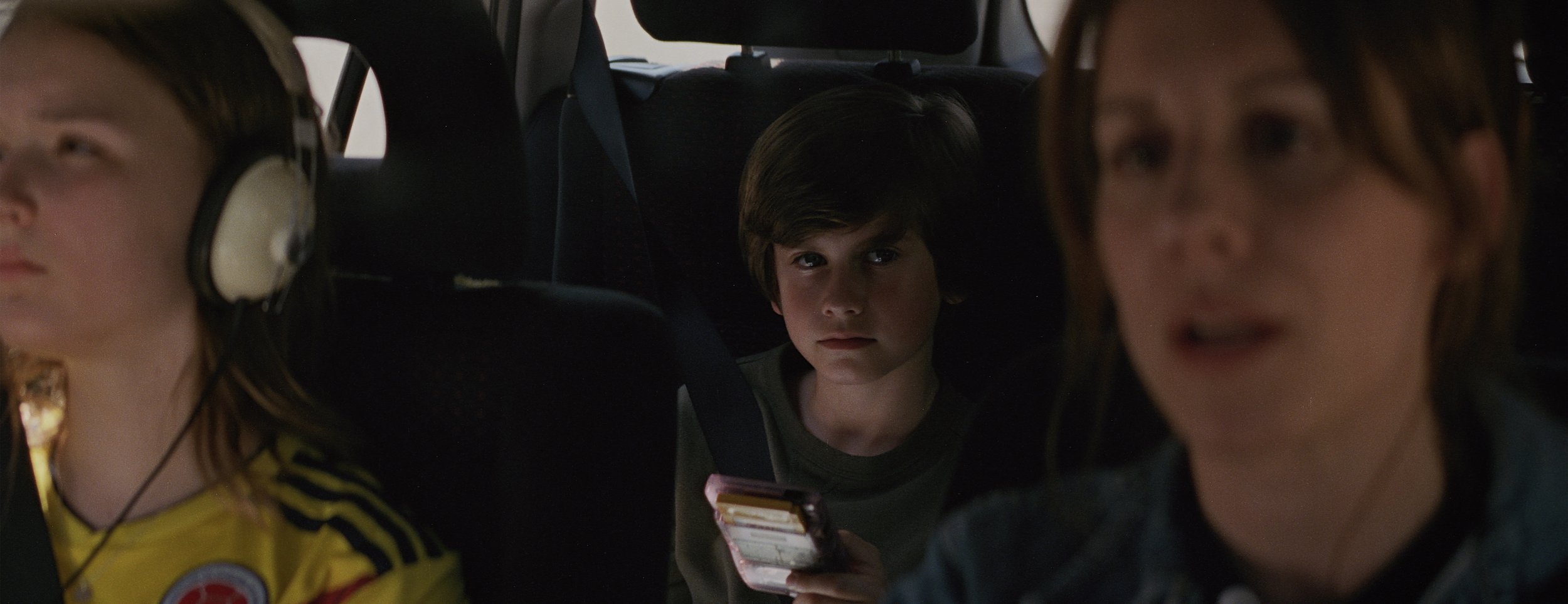David Findlay’s Films Are Better Than Yours
That’s a bold title, perhaps even a little bit affronting, but we didn’t mean to be mean, only to make a point.
David Findlay can make the hell out of a film, and we love to see them. The Canadian-now-Parisian Director’s work has been featured in festivals in Berlin and Amsterdam, headed major marketing campaigns, and yet, he makes time to to produce incredible music videos for our pals like Austyn Gillette. It must, however, be said that the music video we are talking about - the one for Gillette’s single, ‘Leaning Into Your Palms’ - is both a music video and a film in itself. It doesn’t cling to the conventions of the genre of music videos as we know it, rather he turns them into intimate and impactful portrayals worthy of a full-length narrative feature. Unfortunately, we are stuck with a six-ish minute runtime. We’ll take what we can get.
David being a bit of a marvel, we asked him how he does what he does, why he does what he does, and what advice he might pass on for the rest of us.
*This article features BTS and still imagery from the Findlay Directed Music Video for Austyn Gillette’s 2023 single, Leaning Into Your Palms, courtesy of David Findlay.
What’re you doing in Portugal?
I just came here to surf for a few days with some friends. Just chilling really hard and getting my ass kicked in the ocean, but enjoying that. Do you surf? I feel like you surf.
I do not. I grew up in Hawaii, I am Hawaiian, but - and no offense to you - I think surfing is the wackest thing on the planet.
Dude, I got into surfing recently and before that, I thought that surfing was all about peace and love bro, but surfers can be assholes. I’m out there trying my darndest to have fun, I get in the way sometimes, sure, but they’re not into that at all. I get rinsed by dudes sometimes and do my best to not be in the way, I don’t know.
There’s a lot of skate park aggression, but you learn quickly. There are assholes in anything, but in surfing, I feel like it’s not as supportive of each other as the skate culture. How’d you get into filmmaking?
I’m from Quebec City, super long winters, and I just needed something to do it was skiing and snowboarding. In my thirteen year old mind, I was going to be a pro. I was competing and traveling a bit, but I tore my ACL and started to see that my friends were way better than me anyways, so I started filming them. We started getting help from sponsors, travel budgets, premiers - just like these thirty minute long snowboard and ski films. I was able to live that dream vicariously through them which was sweet, but that’s how it started.
Did you know straight away that that’s what you wanted to do?
I was into film, but I didn’t know that that was what I wanted to do. Growing up, it was about Jackie Chan and Bruce Lee, not Godard and Bergman. I went to university in Vancouver just doing general arts, and all it took was this one fantastic film studies professor to completely turn me on to it. This encyclopedia type of man who’d give three hour long riveting lectures with no notes. I was like, ‘Movies! Of course!’ Since then, that’s kind of all I wanted to do.
So you went to school for film?
I did a double major in film studies and film production, yeah. I had a roommate who became my best friend who was really into film, so all day every day at school it was film, then I’d come home and get it from a different perspective. He showed me all this stuff I’d never seen, it was super immersive for a few years.
Were you a partier in uni?
I was at school in Vancouver which is a lovely, beautiful city, but it’s kind of sleepy. All my friends had gone to school in New York and London and be like, ‘University is so crazy and fun!’ and I was like, ‘what? This is not my experience at all,’ and looking back, I’m grateful for that because I feel like I would have been very distracted by that stuff. I was just super focused. People often ask me if film school was worth it, and I think that it depends. What I always say is, ‘I feel like I learned a lot but I don’t feel that I was taught very much.’ I think I learned by being with people who had similar interests, which made a safe space to fall on my face a lot.
That tends to be the case with art things, right?
Yeah, my parents weren’t too stoked after I graduated and told them that I wasn’t taught anything, but it’s true. It’s an environment to make stuff and try things. You can’t make a film yourself, you need a community. Help your friends, they help you back. Now, so much of the community of people I work with all the time are people I knew from film school.
What do you think you’ve gravitated toward thematically?
I don’t think about it, really. I’ve been asked that before and I must have some self awareness, but it’s tough. In the last few - this is so cheesy - I saw a throughline in the theme of friendship. Not just the films, but how they were made. I made a documentary about one of my best friends and his story of meeting his father from Rwanda. This seventy two year old man who didn’t know he had a son until the day they met. It was years after the genocide, this man lost his entire family but then found out he had a son, it was pretty incredible. After that, in Found Me, this short film I made with my friend Mitch; he’d never acted before and he plays this sort of weird guy who dreams of being a referee in an underground wrestling league. I just thought I had known him for so long, he’s got such good mannerisms, I think he’d be great, and he was. Just from the way these films are made, that’s what comes to mind.
What do you think you gain from making films with your friends?
I made those snowboarding and ski films because it was something fun to do and getting to travel and be involved with something I’m interested in, and making films with these people makes me feel like that again. You make films as a group and a community and it’s a shared experience. It’s not like playing guitar alone in your room, which is very gratifying, but you want to share the experience. If I were to one day be in a position where a producer was trying to tell me that I have to cast this person or whatever, I’d probably say that we are going to miss something here and that I’d rather make something with way less money and be super family style in production - no frills or trailers - keep it really chill with people that I like to be around.
How’d you get involved with Austyn Gillette in making his music video?
I like making music videos and I obviously knew Austyn as a pro skater, but I really liked his music, too. The production company that [represents] me will put me up for those directing jobs when a label sends them their new music, and sometimes I’ll hear something and sort of reach out to more indie artists saying I’d like to make a music video for them, so I sent Austyn an email and he got back to me a little later and was open to it. We talked for a bit, and I don’t think he had ever done something like this, so I was like, ‘send me ten songs that you’re working on and I’ll find the one I gravitate toward and we can talk.’ He sent me ‘Leaning Into Your Palms,’ and I liked it a lot. I really connected with it.
We had a bunch of long phone calls about where that song came from for him, the lyrics, the mood, the vibe, our interpretations of it. I thought of some ideas and sent them over to him with some links to other videos that I liked, and we were clearly on the same wavelength.
What were the parameters?
I mean, obviously we aren’t going to be skating in this, he’s not going to be performing or singing the song. He wasn’t such a fan of being in it himself and I was like, ‘nah you can do it.’ I just got a sense that he could do it. I spent some time thinking of ideas and fine tuning, trying to think of something reasonable that we could shoot. Like, obviously I’m not going to set it on the moon or anything like that.
Well even so, it seems like a very high budget video.
Yeah, it has some really good production value and I’m really glad about that. I sent Austyn the idea and normally when you do that, the client or whoever sends back notes and feedback and edits. I sent it to him and I was expecting like, ‘I like this, I don’t like that’ or whatever, but he was like, ‘yeah sounds good lets do it.’ I was kind of confused on that phone call.
No notes, man.
I was kind of digging for feedback and comments and I remember him saying, ‘I’m not sure what you want me to say here.’
How’d that budget go?
I mean, normally for a music video, the budget is like $20k, really small. Usually the production company will invest in it because they think the music video will be culturally relevant and make a splash, and then the company will be seen as cool and get hired by an ad agency to make a Mazda commercial or whatever. I asked Austyn what his budget was and it was very, very small, so I made some phone calls. I work with commercial production companies in different countries, so I called each one and convinced them to help us out. It’s always like that, having to be like, ‘this is a music video and will make no money at all, but this will be cool and you can use it to sell me as a director to get bigger jobs for yourself.’ And all of that budget goes to resources and equipment. I mean, we all get paid, but it’s more like a symbolic pay than actual pay. It was a very friends and favors kind of production, but those are the most fun.
Do you have any advice for someone in film school now who wants to get into film?
I used to have a joke answer that was when you’re on set, wear clothes that don’t show how much you’re sweating. It’s tough because there’s no ladder or path. If you want to be a doctor, you know what to do. There are steps, whereas this industry doesn’t have that. I think that my advice would be just to make a lot and not be precious. I remember being in film school and people being like, ‘it’s not that good we shouldn’t do it,’ but you should just do it. I remember thinking that I could have gotten to where I am a bit quicker if I had done more and fallen more on my face. Four years ago, I made this little two minute thing and was like, ‘oh shit that’s me, this is me.’ Up to that point I was just trying this from here and borrowing from there and stealing a bit from here to be totally honest, and there was something so reassuring to have found this thing that I’m really into and feels like me. Just lean into that. Create things that feel like it’s yours.
See more from David Findlay, here.














